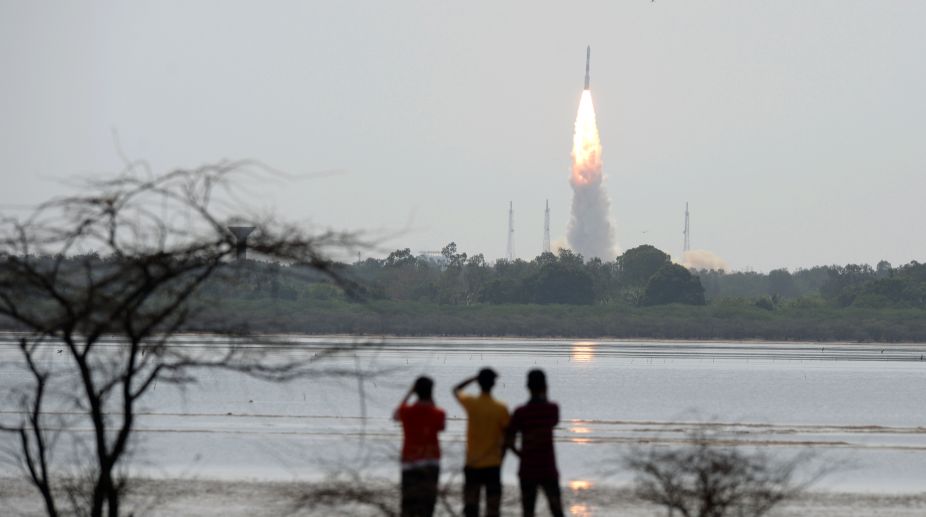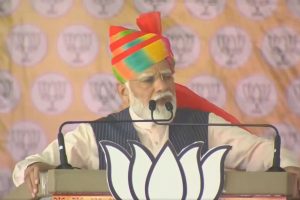In yet another display of its growing prowess in space exploration, India on Friday successfully launched 31 satellites in a Polar Satellite Launch Vehicle (PSLV) from its spaceport in Sriharikota, Andhra Pradesh.
In the first space mission of 2018, the 42nd flight of the 44.4-metre tall PSLV-C40 carrying the 710-kg Cartosat-2 series satellite took off from the Satish Dhawan Space Centre (SDSC) SHAR at 9.29 am, said the state-run Indian Space Research Organisation (ISRO).
The 320-tonne rocket will eject the satellites one-by-one and deploy them into the earth’s lower orbit about 17 minutes and 18 seconds after the lift-off.
The countdown to launch the PSLV-C40/Cartosat-2, India’s 100th satellite with the primary objective of providing high-resolution, scene-specific spot imagery, started on Thursday morning.
The spaceport Satish Dhawan Space Centre, Sriharikota High Altitude Range (SDSC-SHAR) is located about 80 km northeast of Chennai off the Bay of Bengal coast.
The four stage PSLV-C40 stands 44.4 metres tall and weighs about 320 tonne at the lift off stage.
The 31 satellites with a combined weight of 1,323 kg have been integrated with the PSLV for deploying them in the earth’s lower orbit after lift off.
Of the 31 satellites, three are Indian and 28 are from six countries: Canada, Finland, France, South Korea, UK and the US.
The Indian satellites are 710 kg Cartosat-2 series for Earth observation as the primary satellite of the mission, along with co-passenger payloads, including 100 kg micro satellite and a 10 kg nano satellite.
About 17 minutes 18 seconds after the lift off, the Cartosat-2 series will be separated and injected into its 505 km sun synchronous orbit. The Cartosat-2 has been designed to stay in its orbit for five years.
Among the 28 international co-passenger satellites, 19 belong to the US, five from South Korea and one each from Canada, France, UK and Finland.
ISRO would be adopting an optimum separation sequence of all its satellites so as to avoid any collisions.
The space mission comes four months after a similar rocket failed to deliver the country’s eighth navigation satellite in the earth’s lower orbit on August 31, 2017.
ISRO was holding all kinds of system tests to ensure that the problem does not recur in this mission, he added.
As an observational satellite, Cartosat will beam high-quality images for cartographic, urban and rural applications, coastal land use and regulation and utility management like road network monitoring.











